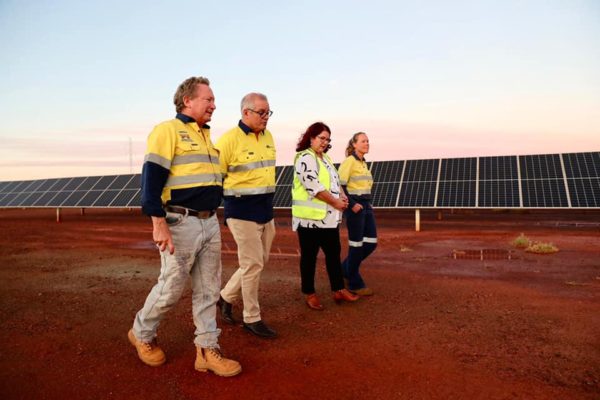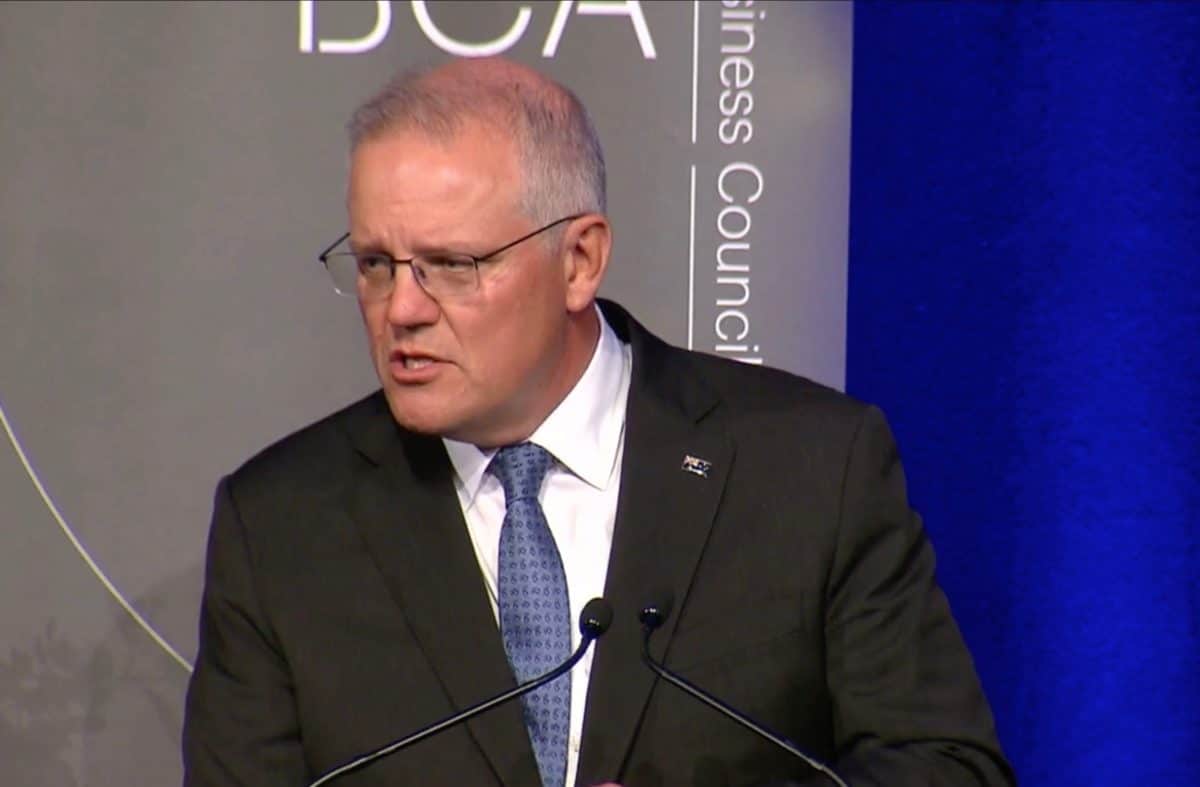Australian Prime Minister Scott Morrison gave a speech on Monday at the Business Council of Australia (BCA) in which, under heightening global pressure, particularly from the Biden Administration in the United States, he continued to make no commitments to 2050 net zero emissions.
The speech came on the same day as South Australia signed a $1.08 billion joint funding deal with the Federal Government to increase gas extraction as a pathway to emissions reduction. However, the deal will also see $100 million in joint support for Project EnergyConnect, a superhighway of new electricity transmission infrastructure connecting South Australia and New South Wales, with a diversion into Victoria, which promises to unlock gigawatts of planned renewable energy projects in its path, and help stabilise the tail end of the National Electricity Market, facilitating bi-directional energy flows as needed.
According to the ABC, Morrison’s speech is a sign that he is inching closer to committing Australia to an emissions target of net zero by 2050, despite further politicising the issue by appearing “to mock those inner-city voters who have long campaigned for climate action, stating, ‘we will not achieve net zero in the cafes, dinner parties and wine bars of our inner cities.’ He said that net zero will be ‘won’ by the energy, industrial, agriculture, mining and manufacturing sectors, pointing to work BHP, Andrew Forrest and AGL are doing to reduce emissions as examples.”

Image: Scott Morrison / Facebook
Of course, if those inner-city pinot-fuelled protestors at cafes, dinner parties and wine bars hadn’t kept the conversation about climate action going for all the years the Coalition has been trying to silence it, then he would probably still be pretending there isn’t a climate problem. In fact, he would probably still be in Hawaii on vacation.
According to Wood Mackenzie Asia Pacific Head of Markets and Transitions, Prakash Sharma, “Australia’s desire to achieve net-zero emissions by 2050 is a step in the right direction. Australia’s major trading partners – China, Japan and South Korea – are already in transition towards that goal. That means Australia will need to retool its commodity exports industry to align with the Paris climate targets.”
Of course, a net zero target by 2050 remains deeply unpopular within the Coalition and Morrison refused to make such a commitment while ruling out the prospect of a carbon tax entirely, despite yesterday’s virtual greenhouse gas summit with US President Biden.
“Our analysis shows that Australia can reach net-zero emissions before 2050,” continued Sharma, “Although the pathway requires complete transformation of its traditional energy and export sectors, there are new opportunities to capitalise on. “This will require Australia to become a significant player in low-carbon hydrogen trade as well as being able to offer carbon storage and offset services. Total carbon removal capacity reaches approximately 200 Mt per annum by 2050 in Australia.”
According to Wood Mackenzie analysis, 83% of power generation will come from solar and wind by 2050, while natural gas, bio energy, geothermal and small modular reactor combined will provide the other 17%. Wood Mackenzie expects coal to be entirely phased out by 2035.
Morrison has strongly supported gas and coal despite the small role gas is predicted to play in Australia’s future, and the extinction of coal altogether. “The key to meeting our climate change ambitions” said Morrison, “is the commercialisation of low emissions technology.”
Instead of mocking inner-city wine swillers for being demonstrably right, Opposition Leader Anthony Albanese also gave a speech on Monday in which he said “It is time to look at the other side of the coin – the huge potential for clean energy to create hundreds of thousands of secure, well-paid jobs.”
“I’m not just talking about jobs for people mining lithium, copper and nickel or those who transform those materials into batteries,” continued Albanese, “I’m talking about a revolution in jobs growth right across the Australian economy based on one inescapable fact – renewable energy is not only clean, but cheap, and getting cheaper.”
This content is protected by copyright and may not be reused. If you want to cooperate with us and would like to reuse some of our content, please contact: editors@pv-magazine.com.









1 comment
By submitting this form you agree to pv magazine using your data for the purposes of publishing your comment.
Your personal data will only be disclosed or otherwise transmitted to third parties for the purposes of spam filtering or if this is necessary for technical maintenance of the website. Any other transfer to third parties will not take place unless this is justified on the basis of applicable data protection regulations or if pv magazine is legally obliged to do so.
You may revoke this consent at any time with effect for the future, in which case your personal data will be deleted immediately. Otherwise, your data will be deleted if pv magazine has processed your request or the purpose of data storage is fulfilled.
Further information on data privacy can be found in our Data Protection Policy.